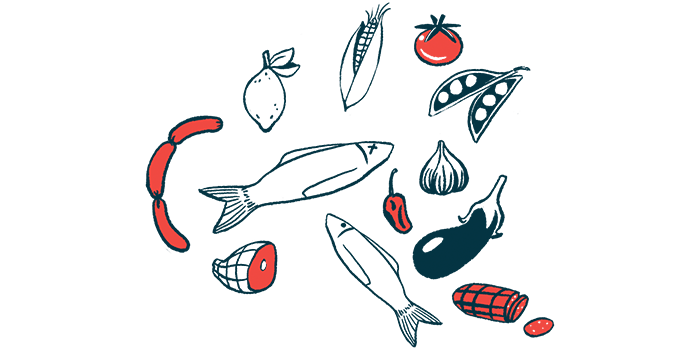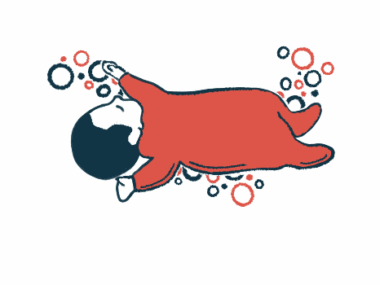Ketogenic diet eases Dravet seizures, cognitive deficits: Study
Nearly a third of patients were free of symptoms at three, six months after starting diet
Written by |

Adopting a ketogenic diet — one low in carbohydrates and high in fat — safely and effectively reduces the frequency of seizures and improves cognitive function and behavior in children and adolescents with Dravet syndrome, according to a multicenter study in China.
Nearly a third of patients were seizure-free at three and six months after starting the diet, further supporting its therapeutic benefits.
The findings suggest the diet should be administered earlier, particularly in those who are unresponsive to anti-seizure medications, to avoid the neurologic and cognitive effects of the disease, the researchers said in “The ketogenic diet for Dravet syndrome: a multi-center retrospective study,” which was published in Nutrition.
Dravet is a type of severe epilepsy, marked by prolonged seizures in the first year of life. Their frequent occurrence can lead to cognitive and physical problems, including with movement and balance, language delays, and symptoms resembling autism.
Since Dravet-associated seizures are usually resistant to standard anti-seizure medications, alternative approaches, such as the ketogenic diet, have been considered.
The ketogenic, or keto, diet is a type of low-carb/high-fat diet with limited protein intake. It promotes a change in the body’s preferable source of energy from standard glucose, or sugar, to fatty bodies called ketones.
It’s thought to promote its beneficial effects through several mechanisms, such as “the production of ketone bodies, caloric restriction,” positive changes in the gut’s microorganisms, and the production of “anti-inflammatory and neuroprotective factors,” wrote researchers in China who retrospectively analyzed data from 114 Dravet patients (67 boys, 47 girls) who adopted a keto diet to learn more about its real-life feasibility and benefits.
Fewer seizures with a ketogenic diet
The patients, followed at 14 epilepsy centers from 2014-2020, had a median age of 3 (range, 7 months to 15 years) at the time the new diet was started. Most (84.2%) were between the age of 1 and 6, and three were newly diagnosed with Dravet.
The children had a median of two epileptic seizures a month and were taking a median of 2.4 anti-seizure medications (range, 0-4). Three-quarters of them had taken two (35.1%) or three (44.7%) anti-seizure therapies, and most (86.8%) didn’t respond to them.
Most (97.2%) transitioned to a ketogenic diet within one to three days and continued it for up to a little more than 4.5 years (median, 10.5 months).
Results showed the diet was effective at reducing seizures by at least 50% in 57.9% of the children after one month, 76.3% after three months, 59.6% after six months, and 43% after a year.
Nearly a third of the patients had no symptoms at three (32.5%) and six months (30.7%) — proportions “higher than previous international results,” the researchers wrote. This proportion dropped to 19.3% at a year, however. The diet’s effectiveness rate was not affected by the patients’ age.
Cognitive and behavioral improvements, mainly in language, intelligence, memory, comprehension, concentration, social interactions, and motor skills, were reported by caregivers in about one-third of the children at three (34.2%) and six months (33.3%). This proportion dropped to 26.3% at one year.
In five patients, cognitive gains were achieved despite a seizure reduction lower than 50% at three months.
Ketogenic diet as an early intervention
The diet was generally safe and well tolerated. The most commonly reported side effects were gastrointestinal problems, such as nausea, vomiting, abdominal pain, constipation, and diarrhea. These gradually reduced over time from about 18% at one month to 0% at a year.
Fever was also a common, but persistent, side effect, reported in 2.8-3.8% of patients.
The proportion of those remaining on the diet (retention rate) dropped from 97.4% after a month to 46.5% after a year and to 16.7% at last follow-up (more than four years) — corresponding to 18 children.
The main reason for discontinuing the diet in the first year was ineffectiveness (16.7%), followed by inconsistent adherence (7.9%), loss to follow-up (7.9%), and pneumonia (4.4%).
“To our knowledge, this was the largest multicenter retrospective observational study of DS [Dravet syndrome] treated with the KD [keto diet],” the researchers wrote.
The findings showcased the diet’s safety and its ability to reduce seizure frequency by at least 50% in a significant proportion of children and adolescents with Dravet.
“As the onset of DS can cause severe neurological impairment associated with cognitive decline … we recommend that KD therapy should be strongly considered for DS as early as possible,” and in addition to one or two anti-seizure medications, wrote the researchers, who said appropriately-controlled studies that follow patients over time are needed “to provide more evidence for the KD intervention time for DS, such as the choice of the KD after the failure of several [anti-seizure medications].”






